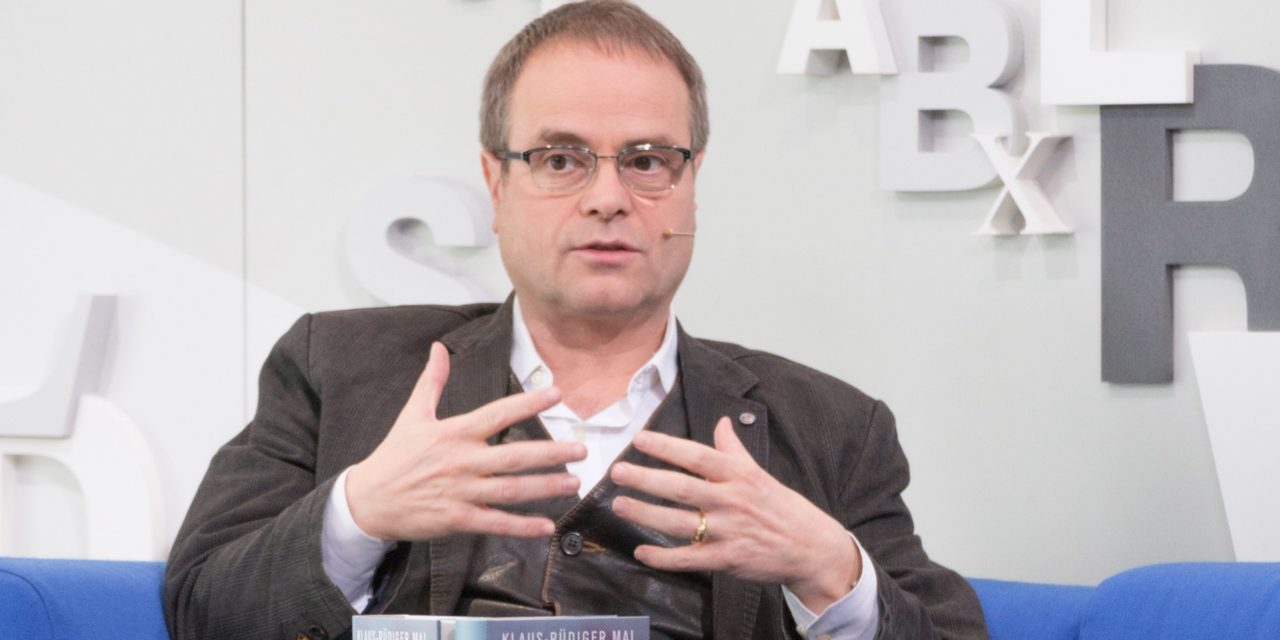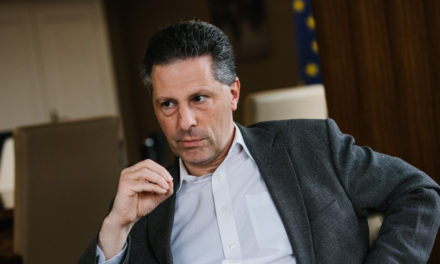The left is building a new and not very nice world in Germany - warns German historian Klaus-Rüdiger Mai in Kossuth Rádió's Vasárnapi Újság program. He added that Europe's largest economy has something to lose, the welfare state is not just a slogan and a memory here, but exclusivity-seeking ideologies and activists who do not tolerate contradiction are already threatening the values that gave the West its greatest strength: competition and freedom.
We shape the future, this is the title of his latest book. Associated with the title, the concepts of self-determination, independence, sovereignty and responsibility for ourselves came to mind.
Very good associations. Indeed, the basic idea is that we have to take more responsibility if we want to shape our own future. Of course, an important question is who is what. It is by no means some distant group, or a specific group of people, but the citizens themselves. I believe that the community of citizens owes an obligation to the republic, in which the citizens themselves must or should shape things in a democratic community.
It's about the future, our future and our children's, so we have to decide which direction Germany is going. We are in the midst of an epochal change that affects not only us in Germany, but also Hungary and the entire European Union. Great economic and philosophical changes are taking place, and the way we look at the world is also changing. A similar driving force at the end of the Middle Ages, for example, was the invention of book printing, and now the spread of digitization has such an effect.
What are the citizens' tools to make the decision? There will be elections in Germany in the fall; is it a tool or the only tool?
Choice is a tool, but not the only one. My book consists of two parts, the first part contains analyses, while the second part gives suggestions on which points should be changed. I may not be right about everything, but it would be important to discuss these issues in order to find solutions that are acceptable to everyone, or at least to the great majority. This is an essential point in reforming the entire democracy.
We need to democratize our democracy again. The current democracy we live in is not anti-democratic, but it lacks vital democratic elements. A striking example of this: in the state of Saxony-Anhalt, the contract of the state broadcaster was not renewed after a dispute arose over the increase of the mandatory subscription fee. I really wish for a good, balanced and strong public service media, because the German public service media is no longer balanced.
In his book, he separately analyzes the different areas of society and the phenomenon of migration, but these areas are related, since it is about society.
Germany does not have many mineral resources, so the country's wealth lies in its education, scientists, technicians, inventors, and engineers. This is what made Germany great after the Empire. However, industrial innovation power cannot exist without an excellent education system, and we currently perform quite mediocre in the PISA assessments.
Education should move away from ideology, such as gender studies, which also appears as a department in Germany. We need sociologists and philosophers who really think about society. We also need competent linguists, but above all a push in the fields of technology and natural sciences, through which we can maintain our prosperity. If this succeeds, we will be really competitive. And if we are competitive, the economy also performs better. This is how education affects the economy, and this is only one point in the connections, and the same is true for democracy.
A poll from Germany came out in the last few days. The research shows that the vast majority of Germans feel that they cannot express their opinions freely. Do you see this as a sad development?
When citizens feel that they can no longer express their opinions freely - regardless of whether this is really the case - and if this feeling is present in a significant proportion of society, then it is worth thinking about the state of social dialogue. . In such cases, it would be worthwhile to discuss the rules of social dialogue. These rules basically represent the limit of what can be said. This is not my formulation, but an experience from the GDR era.
From the point of view of a dialogue, I consider it forbidden to define the limit of what can be said. More precisely, there are some points on which we must say that the further exchange of ideas stops there. This includes all kinds of manifestations of anti-Semitism, but on the other side, this should not be used as a tool, because then the dialogue is interrupted there as well.
I am often asked where the red lines are that cannot be crossed with the spoken word. In such cases, I always ask: who defines this red line? And my answer is always the same, the red line is marked by the constitution, it describes exactly where it is drawn. Moreover, we have a good basic law, it defines where the limit is, not the limit of what can be said, but the limit where the dialogue ends.
And what about political correctness?
Political correctness is quite simply a joke. It's nothing more than a narrowing of the dialogue. Because political correctness does not mean that someone is politically correct, but rather that they have an idea of what is politically correct in accordance with their worldview and ideological convictions. Those who have different ideological beliefs are not among the politically correct. However, the fact that someone has a different political view is part of pluralism. Pluralism means precisely that we have different opinions, but we have a democracy, thanks to which we no longer have to settle our disputes by beating each other's heads in armor, but by sitting down and discussing it around a table. Why does one see it this way and the other that way, what is the solution, is there a solution, do we understand the other, even if we don't agree with him? This is democracy, to discuss and negotiate between different points of view. Ultimately, the point is always the direction in which society is developing and what we call the republic and the common good.
Source: hirado.hu
Cover photo: Wikipedia













